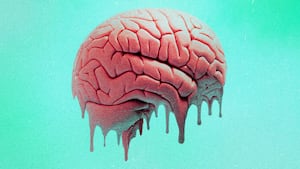“With age comes wisdom,” the old adage goes. However, new scientific research challenges that sentiment—at least for some people.
In a new study published Monday in the journal Proceedings of the National Academy of Sciences, researchers found that members of two indigenous South American communities showed less decline in brain volume as they aged when compared to folks in the U.S. and Europe. The findings add more grist to the body of research into how one’s environment, diet, and lifestyle impact the brain’s health over time—and how most humans ought to shape their own behaviors to ensure optimal brain health long into old age.
Specifically, the researchers looked at people in the Tismane and Moseten communities, two indigenous populations who live primarily in the Amazon. The cultures primarily rely on hunting, fishing, and gathering in order to survive and live relatively far from industrialized areas.
Working with tribal leaders, the study’s authors took CT scans of more than 1,165 Tismane and Moseten people between the ages of 40 and 94 years old. They found that these individuals experienced less of a decrease in brain volume over time than people in the U.S. and Europe, who’s own brain volume shrank much more drastically in old age. The study authors think that this might be due to the low body mass index and cholesterol levels of the tribal populations, along with their physically active lifestyles.
Of course, it’s completely normal for brain volume to decline as we get older. This decline is often associated with age-related neurodegenerative issues such as dementia, Alzheimer’s Disease, and Parkinson’s. However, the stark differences between the decline of the indigenous populations and that of those living in industrialized societies might be an indicator that the eating habits of “overnourished” populations of the U.S. and Europe might be an accelerating contributor to declining brain volume.
“This discrepancy represents a form of evolutionary mismatch we call an ‘embarrassment of riches’ due to recent changes in diet, activity, and other environmental exposures,” the paper’s authors wrote. “The minimal dementia and coronary artery disease in Tsimane and Moseten, combined with these findings, imply that aging outcomes are optimized at intermediate lifestyle values.”
It’s important to note that the differences in decline don’t last forever. At a certain point, both undernourished and overnourished people experience a decline in brain volume. That’s just the reality of aging. However, the findings do shed a little more light on the bad brain health of those in developed nations when compared to indigenous groups.
The authors added that “future research should focus on how our evolved biology interacts with conscious goals in relation to eating, exercise, and physiology.”
The study is a part of a growing body of evidence that the modern world is filled with factors that may actually be causing negative impacts on our brain health—from Western diets, to near constant exposure to air pollution, to disaster trauma that’s literally rewiring our brains. If we’re not careful, declining brain health may soon bloom into its own kind of new crisis for the 20th century.







